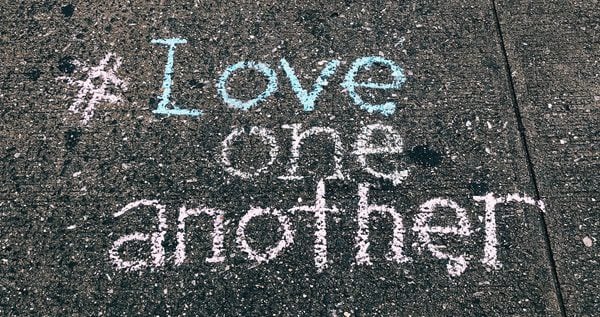President Trump formally recognized Jerusalem as the capital of Israel on Wednesday. He set in place controversial plans to move the US Embassy from Tel Aviv to Jerusalem, a holy city for Jews, Christians, and Muslims alike.
According to the president, recognizing Jerusalem as the capital is a “long overdue step to advance the peace process.”
But people throughout the world are responding not with a peaceful sentiment, but with increased anxiety. Trump claims that this is part of a larger peace plan that he is gradually implementing. Other world leaders, including leaders in the Middle East, don’t share his sentiment. In fact, most world leaders are condemning the move. And I fear my more fundamentalist Christian siblings. I can only hope there’s a bigger picture in play here that doesn’t involve their crazy end times prophecies.
We don’t know what Trump has planned. That lack of knowledge produces even more anxiety. But we don’t have to be slaves to anxiety. In fact, the good news is that Judaism, Christianity, and Islam each have the tools to help us manage our anxiety.
Jews, Christians, and Muslims share a common ancestor in Abraham. There are two stories about Abraham that are particularly important for members of these three faiths to keep in mind during this time.
The Calling of Abraham
The first story is the call of Abraham in Genesis 12.* God called Abraham to “Go from your country and your kindred and your father’s house to the land that I will show you. I will make of you a great nation, and I will bless you, and make your name great, so that you will be a blessing. I will bless those who bless you and the one who curses you I will curse; and in you all the families of the earth shall be blessed.”
Jews, Christians, and Muslims each claim to be descendants of Abraham. And so this is our divine mission. God has blessed us so that we will be a blessing to all the families of the earth. The mission to Abraham is unambiguous. His job is to bless. If there is any cursing to be done, it’s not by Abraham. It’s to be done by God.
This is such a radical departure from normal human relationships. Our relationships tend to be much more ambiguous. Yes, we will bless those who bless us, but we will also curse those who curse us, especially during times of anxiety. This is the mimetic, or imitative, nature of being human. We respond to love with love, but we also respond to violence with violence.
God’s call to Abraham is to stop the cycle of cursing one another. It’s to stop the cycle of violence by exchanging it with a cycle of blessing. Indeed, the promise does include land, but if the land becomes a justification to curse others, then we’ve lost the plot.** Because the plot is to be a blessing to everyone. But if we lose the plot, we will lose the land to a cycle of our own violent destruction.
Jews, Christians, and Muslims claim that this land is holy, but we are getting dangerously close to the point where it’s not about the land. Rather, it’s about defeating our rival. There comes a point in every conflict where the object of our desire fades from view and all that’s left is destroying our rival. Unfortunately, the object becomes a casualty of that destruction. In this case, the land may be holy, but if we lose the plot of our shared story to be a blessing to one another, we risk destroying one another and the land. So, let’s not let our anxiety distract us. Instead, let’s stick to the plot.
The Akedah
Jews, Christians, and Muslims share another story about Abraham. All three peoples believe that God called Abraham to sacrifice his son. The story is told in a few different ways. For Jews and Christians, Abraham’s son was Isaac; for Muslims it was Ishmael. People have debated the significance of this story for thousands of years, but there is one essential point. In the end, God stopped the violent sacrifice from happening.
Abraham is the father of our religions because God started something radically new through him and through his wife Sarah and through Hagar. This was the first move in history away from human sacrifice. It is the first move away from thinking that God demands any form of violence. The point of the story for Jews, Christians, and Muslims is that God stopped the sacrifice. Why? Because God wants us to be a blessing to one another, not a curse.
A New Way of Being Human
This is the anti-sacrificial, in other words, the anti-violent, strand that Judaism, Christianity, and Islam share. Nearly 3,000 years ago, it ushered in a new way of being human. And we are just now catching up to the God-given fact that our shared mission in life is to be a blessing to one another, not a curse.
It’s during times of great anxiety when we are most prone to becoming distracted from our mission. But we don’t have time to be distracted. As children of Abraham, we need to stay focused on our mission. No matter what our world leaders do, we need to reclaim these stories about Abraham now more than ever.
*Many will know that in Genesis 12, Abraham hasn’t had his name changed yet, so he is called Abram. I’m calling him Abraham here because it would take too long to explain and distract from the overall purpose of this article.
** Did you like what I did there? Plot…Land…
Image: Screenshot from YouTube.
Stay in the loop! Like Teaching Nonviolent Atonement on Facebook!












